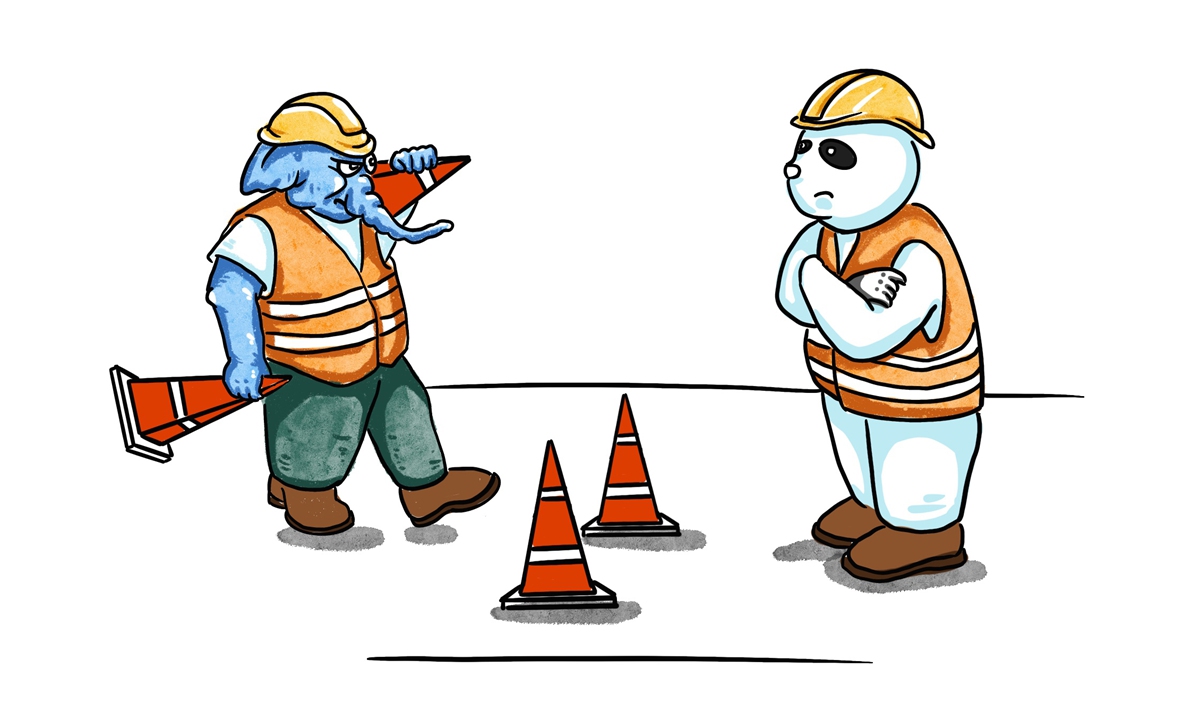Indian nationalism may sink trade with China over 30%
By Dai Yonghong Source:Global Times Published: 2020/6/29 20:54:17

Illustration: Tang Tengfei/GT
India's recently accelerating nationalism toward China has spilled to economic areas. That, coupled with the fallout of the deadly COVID-19 pandemic, could cause bilateral trade to plunge more than 30 percent this year.
With rapidly rising uncertainties in bilateral relations, China's investments in India deserve increased comprehensive reassessment and Chinese investors should be fully cautious toward the risk of the expanding nationalism in India.
Following the recent deadly border clash between China and India, increased nationalism has been instigated among Indian citizens by certain politicians and media in India. In addition to a campaign to boycott Chinese products among Indian residents, the country's ports have reportedly put extra customs checks on cargoes from China since June 22, including massive components and parts needed by India-based producers, as well as products of Apple, Cisco and Dell.
Before the clash, India announced enhanced scrutiny of foreign investments, which was regarded as a measure to prevent acquisitions by Chinese firms. The move was largely taken to serve political purposes and reflected how immature the Indian market and Indian economic strategies are.
Echoing the US' decoupling efforts, India wants to receive industrial relocations from China. But it is very difficult to be realized, given its insufficient infrastructure for both hardware and software facilities.
Cutting economic links with China is not easy. And, Chinese enterprises that have investments in or intend to explore the Indian market should be very cautious of erratic nationalism, and carry out comprehensive assessment before putting their investments in the country. The same scenario also applies to foreign investments from other countries or regions if they cannot guarantee a permanent amicable relationship with India.
Under such circumstances, bilateral trade between China and India is likely to drop one third on a yearly basis in 2020, and could even dive by 50 percent.
China and India have developed close economic ties in the past years, with both sides maintaining comparative advantages in certain sectors like auto manufacturing, telecommunications and pharmaceuticals. Highly dependent on Chinese supplies, many Indian industries cannot afford an irrational boycott of Chinese components. It would take India years of huge efforts to find a substitute, either by shoring up its own industries or luring investment from other countries.
Although the two countries have seen expanding economic cooperation in previous years, India has also complained of its trade deficit with China. Rather than asking China to narrow the deficit, it is more critical for India to reflect on its own industrial competitiveness as global trade is related with the rule of comparative advantages.
Indian consumers prefer cost-efficient products. For instance, Chinese smartphones maintain higher comparative advantages than Indian domestic products. One Chinese smartphone, the OnePlus 8 Pro, sold out in India minutes after hitting shelves on an e-commerce platform despite nationalist boycott of Chinese products.
Under huge economic pressure, the Indian government has chosen to ease lockdown restrictions despite resurging numbers of infections. As of Monday, India's number of confirmed COVID-19 cases ranked fourth globally, approaching 550,000.
With a large population and unfavorable medical system, it is critical for the country to first contain the viral spread in order to resume economic growth, and to cool down its nationalism and devise wise and rational strategies based on economic principles, rather than allowing its economic policy to be kidnapped by wild nationalism.
Given that China and India maintain economic complementarity, and their latest commander-level border talks have set the tone for easing their border tensions, it is expected that bilateral economic cooperation will return to normal and regain growth momentum in the long run.
The author is director of the Institute of Bay of Bengal Studies at Shenzhen University. bizopinion@globaltimes.com.cn
Posted in: EXPERT ASSESSMENT